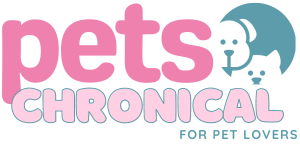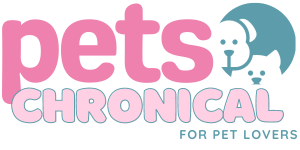If you’re a pet lover looking for a breed that combines intelligence, athleticism, and a fun-loving personality, the Curly Coated Retriever might be the perfect match for you. With their distinctive curly coat, this breed is not only aesthetically pleasing but also incredibly loyal and versatile. In this blog post, we will delve into the world of Curly Coated Retrievers, exploring their history, characteristics, training needs, and health considerations. So, let’s jump right in and discover what makes these curly wonders so special!
A Brief Introduction to the Curly Coated Retriever
The Curly Coated Retriever, often referred to as the “Curly,” is one of the oldest retrieving breeds. Originating in England, these dogs were developed to assist hunters in retrieving game from both land and water. Known for their excellent swimming skills, rugged endurance, and remarkable retrieving instincts, Curly Coated Retrievers quickly became a popular choice among hunters.
Getting to Know the Curly Coated Retriever
Appearance
One of the most striking features of the Curly Coated Retriever is, of course, its unique curly coat. This dense, water-resistant coat helps protect them from harsh weather conditions and allows them to excel in water-related activities. Their coat can be black or liver-colored, and it’s important to note that the breed does not come in different coat lengths or colors, unlike some other retriever breeds.
In terms of size, Curly Coated Retrievers are considered a medium to large breed. Males typically stand between 25 to 27 inches (63 to 69 cm) at the shoulder, while females are slightly smaller, measuring around 23 to 25 inches (58 to 63 cm). Their well-muscled bodies and balanced proportions lend them an athletic appearance.
Curly Coated Retriever – Temperament
Curly Coated Retrievers have a playful, outgoing, and sometimes mischievous personality, making them a delight to be around. They are known for their unwavering loyalty and deep bond with their family members. While they may initially appear reserved around strangers, once they warm up, their friendly nature shines through.
Their intelligence and eagerness to please make them highly trainable. These dogs thrive on mental stimulation, so providing them with tasks or puzzles is a great way to keep them engaged. Whether you’re teaching them new tricks or involving them in advanced activities such as tracking or search-and-rescue, Curly Coated Retrievers are up for the challenge.
Exercise and Training Needs
One thing that sets Curly Coated Retrievers apart is their high energy level. They require plenty of physical exercise and mental stimulation to keep them happy and balanced. Daily walks, vigorous play sessions, and activities such as obedience training or agility courses are excellent ways to meet their exercise needs.
Training a Curly Coated Retriever can be a rewarding experience. With their intelligence and willingness to learn, they excel in obedience training and various canine sports. However, they thrive best with positive reinforcement techniques and consistency. Harsh or heavy-handed training methods are not suitable for this sensitive breed.
Curly Coated Retriever – Grooming
Maintaining the curly coat of a Curly Coated Retriever requires regular attention and care. Despite their name, their coat is not high-maintenance. However, it’s essential to brush them weekly to prevent matting and remove any debris or loose hair. During shedding seasons, which occur twice a year, they may require more frequent brushing to keep their coat in prime condition.
Bathing should be done as needed, taking care not to strip their coat of its natural oils. Due to their curly hair, they may require more drying time than other breeds to avoid skin issues. Regular dental care, nail trimming, and ear cleaning are also essential parts of their grooming routine.
Health Considerations for Curly Coated Retrievers
When welcoming any dog into your family, it’s crucial to be aware of potential health issues that may affect the breed. While Curly Coated Retrievers are generally healthy, there are a few conditions that they may be predisposed to, such as:
Hip and Elbow Dysplasia
As with many large breeds, Curly Coated Retrievers can be prone to hip and elbow dysplasia. These conditions refer to abnormal joint development, possibly leading to lameness and pain. Regular veterinary check-ups and appropriate screening can help identify and manage these conditions early on.
Eye Disorders
Some Curly Coated Retrievers may be at risk for certain inherited eye disorders, including cataracts and progressive retinal atrophy (PRA). Regular eye exams by a qualified veterinary ophthalmologist are essential to detect and address any potential issues.
Bloat
Bloat, also known as gastric torsion, is a potentially life-threatening condition that can affect large-chested dogs like Curly Coated Retrievers. Feeding them smaller, more frequent meals, and avoiding vigorous exercise after meals can help reduce the risk of developing bloat.
As with any breed, ensuring regular veterinary care, maintaining a healthy diet, and providing ample exercise are vital for keeping Curly Coated Retrievers in optimal health.
Is a Curly Coated Retriever Right for You?
Now that we’ve covered the basics of the breed, let’s consider whether a Curly Coated Retriever is a suitable addition to your family. Here are a few factors to keep in mind:
Active Lifestyle
Curly Coated Retrievers thrive in environments that offer plenty of opportunities for exercise and mental stimulation. They are not couch potatoes and require active family members who can keep up with their energy levels. If you enjoy outdoor activities, such as hiking, swimming, or playing fetch, a Curly Coated Retriever might be a perfect match.
Positive Reinforcement Training
If you have experience with positive reinforcement training methods and enjoy the process of teaching new tricks and skills, a Curly Coated Retriever could be an excellent choice. Their intelligence, eagerness to learn, and problem-solving abilities make them well-suited for various training activities.
Grooming Commitment
While Curly Coated Retrievers’ coats are not overly demanding, they still require regular brushing and maintenance. If you can devote some time to their grooming needs, including occasional visits to a professional groomer, you’ll be able to keep their coat healthy and gorgeous.
Family Compatibility
Curly Coated Retrievers form strong bonds with their human families and thrive in households where they are included in daily activities. They generally do well with children and get along with other dogs if properly socialized from an early age. However, it’s important to remember that each dog has its unique personality, and proper introductions and supervision are necessary when introducing a new family member, whether human or furry.
Conclusion
The Curly Coated Retriever is an exceptional breed that brings joy, companionship, and fun to the lives of pet lovers. From their unique curly coat to their playful and loyal temperament, these dogs have it all. However, they’re not the right fit for everyone. If you’re an active individual or family with a passion for training, outdoor adventures, and grooming, a Curly Coated Retriever might be the perfect companion for you. Remember to provide them with plenty of exercise, love, and positive reinforcement, and you’ll be rewarded with a truly remarkable and devoted friend for life.





